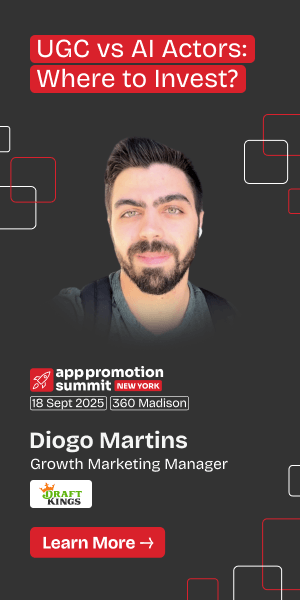What is a Growth Team?
With Uber, Airbnb and Google all attributing large parts of their success to the work of their growth teams, there is little doubt that incorporating a growth team into the business can create sustainable growth. Growth teams have largely emerged due to technology having changed the timespan associated with the mass adoption of new products.
But what does a growth team do? This may be case specific and dependent on your business goals. At Yodel Mobile, we look at app growth holistically. Our growth team increase the rate of customer acquisition and retention through optimizing products and creating the perfect blend of acquisition channels. Most essentially, we bridge the gap between your marketing, engineering and product teams. A growth team should be able to deliver a trajectory of a long-term vision for the business and a prioritization framework informed by data. Whilst the growth team is focused on scalable growth rather than revenue metrics, increased revenue remains a by-product of a successful growth team.
Why is a Growth Team important?
Most great product leaders are capable of bridging the intersection between business and technology, however their role often does not include having experience with user acquisition, retention and engagement. There is a long list of skills that are essential for growth, but are lacking within the existing team because they are not often considered core to the product. It is also impossible for all factors of growth to be monitored and driven by one individual, instead these efforts need to be collected within the larger framework of the company. A growth team is essential for a business as it drives a long-term vision across all departments, alleviating dependency between teams, and can be much more reactive, quickly adapting to any tests or changes.
The Challenge
Whether working for a start-up or a large-scale enterprise, launching or scaling an app product, it is not uncommon for app marketers to face difficulties when it comes to getting the business on board to invest resources and budget. The concept of a ‘growth team’ in particular is still a relatively new one and explaining the need for such a significant addition to key stakeholders is rarely an easy feat. There are a lot of organizational challenges that can hinder your efforts, such as the culture of the leadership team. It is also worth noting that no growth strategy can be implemented overnight, it takes changes over time and an Agile mindset. This is where effective methods for getting the business to adopt a sustainable growth strategy become essential.
Building a Growth Team 101
One of the first steps toward creating a successful growth strategy is conducting a thorough analysis of your app and the marketplace. An understanding of your apps’ unique positioning will become a competitive advantage in the long run. It is also important to consider which stage of the lifecycle your app is in. A start-up and an enterprise will naturally have different objectives and goals, so their growth teams will need to be structured in a way that supports these goals. The analysis conducted can provide insight into the way in which a growth team should be incorporated into the business, the main methods are:
- appointing people within an existing team to focus on growth
- building out a growth team from scratch
- outsourcing the growth team
Outsourcing growth can be the most time and cost efficient method as it saves having to train employees, in both mobile growth techniques and new areas of the business. Using an app growth consultancy, with experience in growth marketing, can also allow for the immediate implementation of transferred learning from large client bases as the consultancy plugs themselves in as an extension of the business. Yodel Mobile, in particular, creates an app growth blueprint which can then be adopted internally after completion of the project. Outsourcing the growth team also gives a business the ability to test the success of having a growth team and how it can transform your business without making any permanent hires. Presenting the most efficient method for implementing long-term growth to the rest of the business will increase the chances of getting them on board.
Persuading the Business to Adopt a Growth Mentality
Once an app marketer has understood how a growth team can transform the business as well as the unique growth structure that would be most successful, the next step is getting the rest of the business to see its value.
- Align the business functions
The biggest challenge to implementing a growth team is often the company culture. The majority of key stakeholders will be looking to mimic the existing business roadmap as closely as possible. In addition to this, every team within the business will have specific goals that they will want to continue aiming for. In order to get everyone on board, it is essential to align the benefits of a growth team with the needs of the business and show how this can alleviate some of the current challenges. This will be key to changing the discussion from talking about growth as a risk to viewing it as an opportunity.
- Use data to make your case
One way of approaching this is using data-informed examples to showcase how a growth team will be able to use strategies to find ways to rapidly improve how customers interact with the app. Thus revealing hypotheses that can be implemented quickly, enabling the business to gain results in a far shorter period of time. It is also important to reinforce that a successful growth team uses Agile methodology which means that it not only combines adaptability and efficiency with stability but also uses iterative planning and data to continuously align the growth strategy to the wider business goals. The ability to quickly reorient the organization toward valuable opportunities can improve the performance of working groups across the enterprise.
- Bridge the communication gap
Another challenge can be the lack of communication between teams making it more difficult to get everyone on board. The first thing that needs to be established here is a logical methodology to ensure everyone is engaged. Simplicity here is key. It is important to clearly outline timelines and make use of visual tools, such as samples and demos, to keep stakeholders informed. A good way to get people on board early on is discussing the strategy with different areas of the business as this will show a wider strategic thinking and will help to seek out employees that could become ambassadors for growth techniques. Focus on empowering all stakeholders throughout, aligning them with corporate strategies, incorporating their questions, concerns and expectations in the process. Bringing all stakeholders together to work as a collaborative team aiming for a common goal provides the highest chance of getting everyone on board. This can be reinforced through a multitude of different methods:
- holding quarterly stakeholder meetings
- putting together a presentation around how the growth team aligns with the business goals and organizing a cross-department presentation
- sending out relevant updates to keep stakeholders aware of any changes
- working in four week sprints
- creating a growth strategy prioritization calendar
All of these methods will simultaneously build strong relationships with all relevant employees, increasing your authority and providing you with faster responses from people as a result.
The Importance of Performance
The results you achieve throughout are fundamental to making a strong case for adaptation and achieving buy-in. Stakeholders will always respond well to positive data as it gives better visibility on how their business metrics can be improved and data will always be given more weight in the decision-making process over experience and intuition. Taking a data-informed approach means using data harmoniously with wider business knowledge, such as market research and competitor benchmarking, to reinforce your proposition. Data needs to be embedded into the operating models of real-world processes in order to provide a value-driving answer. Numbers mean little when independent from the context of leaders, culture, and communication.
How Yodel Mobile Can Help
The core purpose of an app growth team is to increase revenue, acquisition, retention, engagement and other business metrics. Yodel Mobile is an Agile and holistic consultancy, which focuses on data-informed strategies that are implemented through creative and innovative methods. We work across the whole app user lifecycle, understanding the wider business needs throughout. This methodology enables long-term sustainable growth and success, and we’ve done so for over 200 apps since our launch in 2007.
Want to find out more? Get in touch here.











